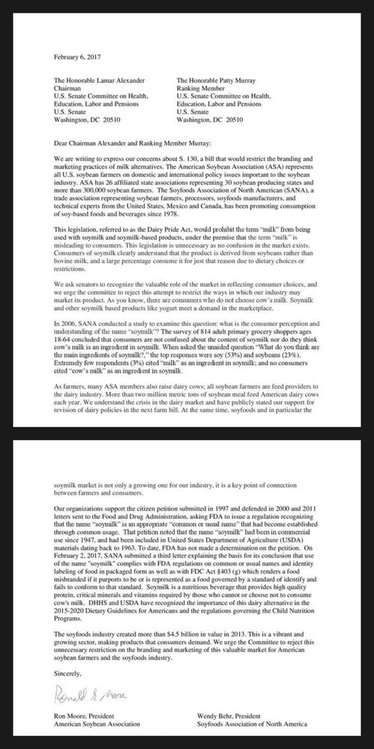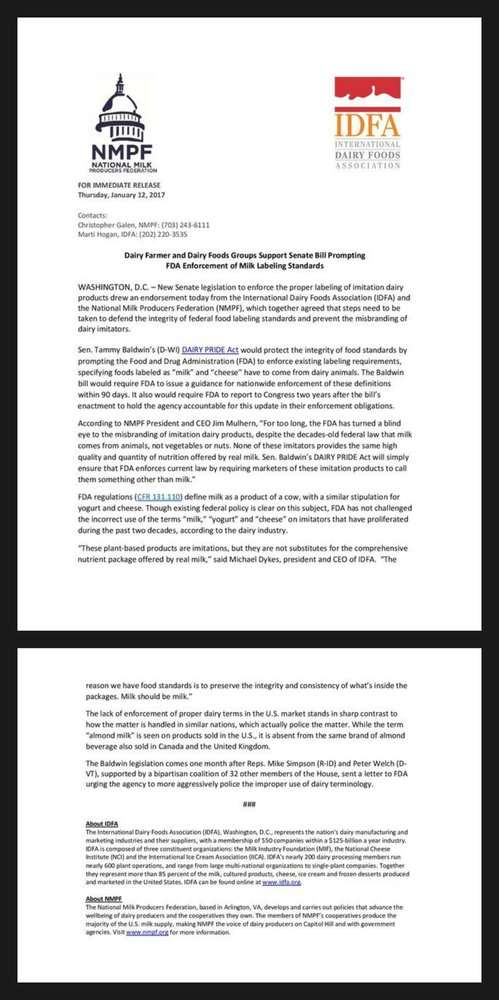Legislation would prohibit the word “milk” on soymilk products
By Diego Flammini
Assistant Editor, North American Content
Farms.com
The American Soybean Association (ASA) penned a letter to the Senate Health, Education, Labor and Pensions (HELP) Committee in opposition of the Dairy Pride Act.
The proposed legislation would prohibit the use of the word “milk” on soymilk and soymilk-based products because “plant-based products labeled as milk are misleading to consumers.”
It’s a measure the ASA feels is unneeded.
“This legislation is unnecessary as no confusion in the market exists,” reads the letter signed by Ron Moore, ASA president, and Wendy Behr, president of Soyfoods Association of North America (SANA). “Consumers of soymilk clearly understand that the product is derived from soybeans rather than bovine milk, and a large percentage consume it for just that reason due to dietary choices or restrictions.”
A 2006 survey conducted by SANA revealed that consumers are well aware of the differences between cow’s milk and soymilk, the letter explains.

“When asked the unaided question ‘What do you think are the main ingredients of soymilk?,’ the top responses (of 814 people surveyed) were soy (53 per cent) and soybeans (23 per cent). Extremely few respondents (3 per cent) cited “milk” as an ingredient in soymilk; and no consumers cited ‘cow’s milk’ as an ingredient in soymilk.”
Many soybean farmers also raise dairy cattle or provide feed to the dairy industry, the letter states.
“More than two million metric tons of soybean meal feed American dairy cows each year...We urge the Committee to reject this unnecessary restriction on the branding and marketing of this valuable market for American soybean farmers and the soyfoods industry.”
But those advocating for the dairy industry feel the Dairy Pride Act is a necessary piece of legislation. Especially since the Food and Drug Administration describes milk as “the lacteal secretion, practically free from colostrum, obtained by the complete milking of one or more healthy cows.”
“These plant-based products are imitations, but they are not substitutes for the comprehensive nutrient package offered by real milk,” Michael Dykes, president and CEO of the International Dairy Foods Association, said in a Jan. 12 letter co-written by the National Milk Producers Federation. “The reason we have food standards is to preserve the integrity and consistency of what’s inside the packages. Milk should be milk.”
